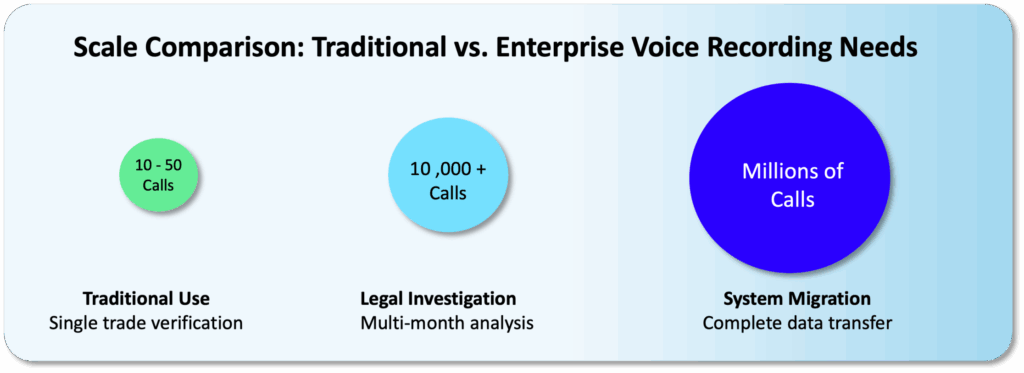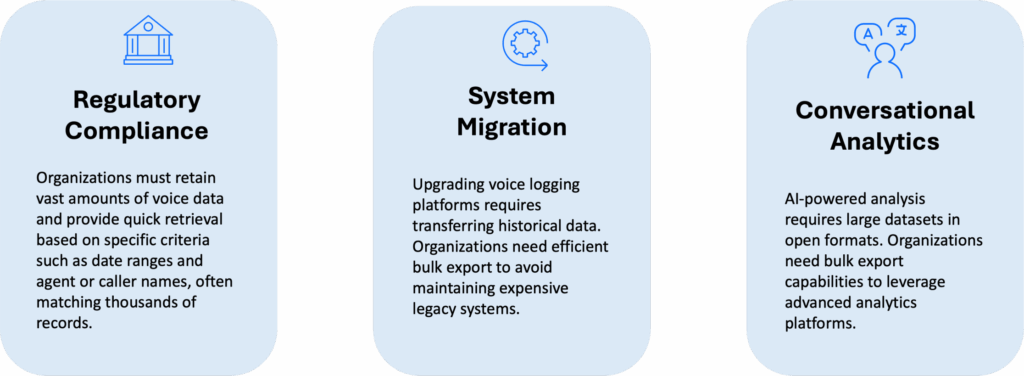Modern organizations generate vast amounts of voice data daily through their customer communication systems. While traditional voice logging systems excel at capturing and storing individual conversations, they often struggle when faced with the challenge of bulk data retrieval. Being able to retrieve voice data at scale becomes a critical business issue when satisfying broad legal discovery requests, seeking to feed voice data into a conversational analytics engines, or undertaking voice recorder migration projects.
The limitations inherent in the native voice retrieval from logging systems can create significant operational bottlenecks, compromise compliance, and diminish the business value of your voice data recordings.

Traditional voice logging systems were designed with individual call retrieval in mind. They perform admirably when users need to access a few dozen recordings to clarify details around a specific stock trade or review a particular customer interaction. However, this approach becomes inadequate when organizations require access to thousands or millions of recordings simultaneously.
The fundamental limitation of bulk data export lies in the architecture of most voice logging platforms. These systems typically provide user interfaces optimized for single-call playback and small-batch exports. When faced with large-scale data requirements, users must resort to repetitive manual processes or rely on limited API functionality that may not even be available on their particular platform.


Successful bulk export operations require careful consideration of several technical factors. The exported data must maintain its integrity and authenticity, particularly for legal applications where recordings may serve as court evidence. This requirement demands robust metadata preservation, including timestamps, participant information, and chain-of-custody documentation.
Format standardization presents another critical challenge. While individual voice logging systems may use proprietary formats optimized for their specific platforms, bulk exports typically require conversion to industry-standard formats that can be consumed by various analytics platforms and legal systems.

Organizations facing bulk export challenges have several strategic options to consider. Some may choose to negotiate with their current voice logging vendor for enhanced export capabilities, though this approach often involves significant additional licensing costs and professional services fees. Others may invest in third-party tools specifically designed to extract data from proprietary voice logging formats.
The most forward-thinking organizations are beginning to factor bulk export capabilities into their voice logging procurement decisions. By selecting platforms that prioritize data portability and open standards, these organizations position themselves for greater flexibility in future technology decisions while ensuring compliance with evolving regulatory requirements.
As the volume and value of voice data continue to grow, the ability to efficiently manage and analyze this information at scale becomes a competitive differentiator. Organizations that master bulk voice data management will be better positioned to leverage advanced analytics, ensure regulatory compliance, and make informed decisions based on comprehensive historical records.